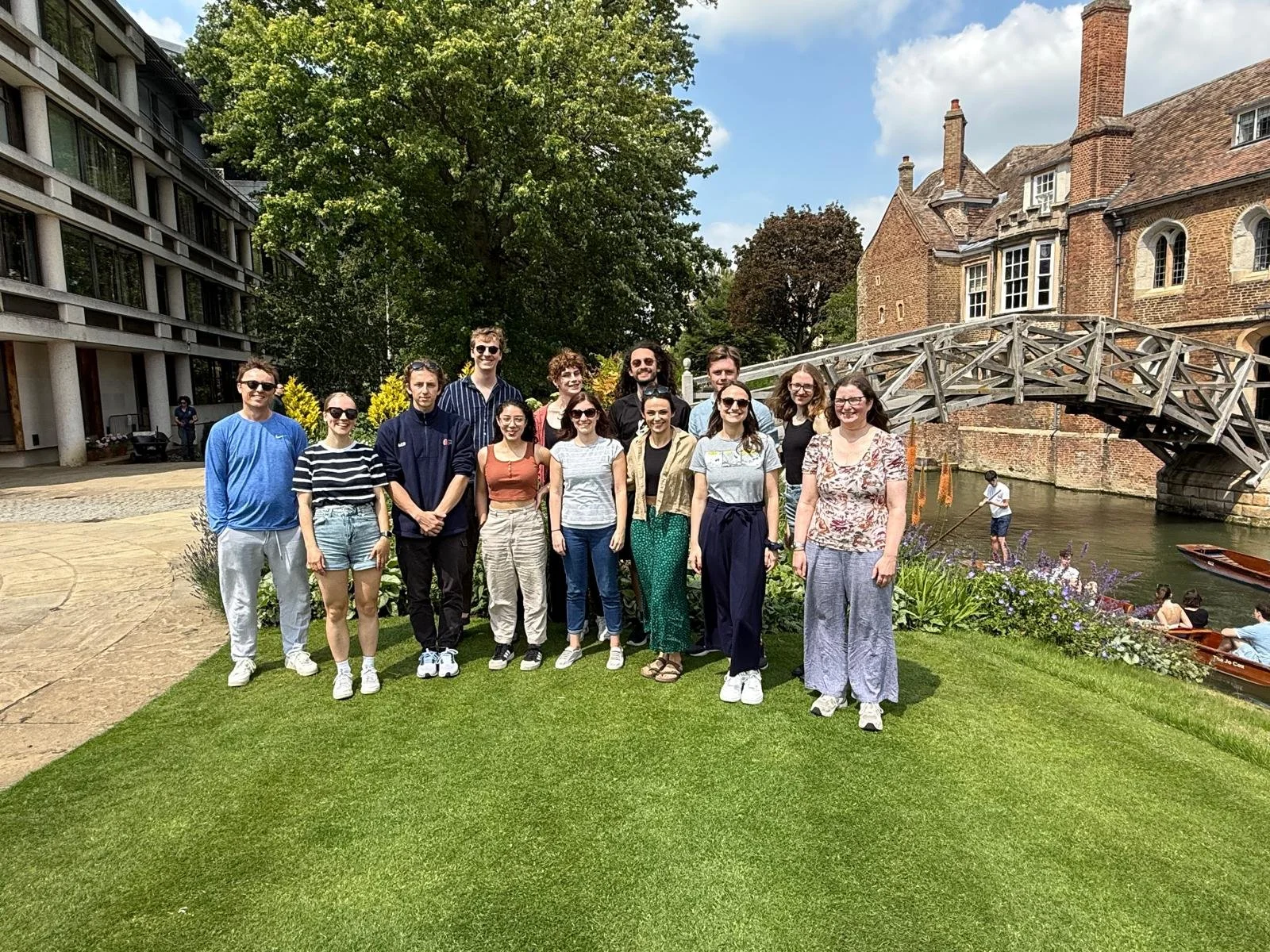We aim to develop a quantitative understanding of somatic evolution and adaptive immunology to predict and prevent cancer
Group photo, summer 2025. Left to right: Jamie Blundell, Abigail Colley, Marco Dupuis Rodriguez, Samuel Hackett, Akemi Ramos, Jessica Moore, Shelley Evans, Iñigo Ayestaran, Venetia D’Arcy, Hamish MacGregor, Adriana Fonseca, Barbara Walkowiak, Anne Babbage.
We are a multi-disciplinary research group in the Early Cancer Institute at the University of Cambridge. We are interested in the somatic evolution that occurs in our tissues in the years and decades before a cancer diagnosis and how this differs from the evolution occuring in people never destined to develop a cancer.
Our vision is that by developing a quantitative understanding of somatic evolution across healthy and pre-cancerous human tissues we will be able to design more rational approaches to predict and prevent cancer. To achieve this we combine three key elements: large-scale clinical sample collections harbouring pre-cancerous lesions, the development of state-of-the-art genomic technologies to measure somatic evolution in depth, and data-driven evolutionary models that forecast how cellular changes progress and respond to interventions.
A growing interest of our lab is to understand adaptive immune recognition in early cancer. Our principle interests here are in understanding how best to design vaccines to target pre-cancerous lesions, how cancer shapes and is shaped by the reperotire of T-cells we have, and to what extent we can use AI to solve the TCR-antigen recognition problem.
Our work is generously supported by a UKRI Future Leaders Fellowship, by Cancer Research UK and the University of Cambridge.

